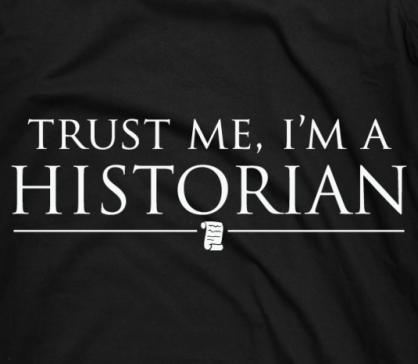Our readings for this week discussed collaboration online and all of the possibilities the internet offers in terms of information sharing and all of the (unused) potential for historians to share their knowledge. By this point in the course, I feel I have read enough long-winded diatribes on what historians should be doing and not enough about how to solve these problems in a way that is constructive and not discussed in abstract terms. This week we begin to move out of the abstract and into some practical applications. So, what does collaboration online bring to the production of knowledge? Paul Ford in “The Web is a Customer Service Media“, explains why collaboration is such a powerful component of the internet. He notes
“Humans have a fundamental need to be consulted, engaged, to exercise their knowledge (and thus power), and no other medium that came before has been able to tap into that as effectively.”
This conversation brought flashbacks of a certain Foucault discussion, but I digress. What is so important about Ford’s statement here, is that as humans we want to feel like we have the power of opinion in what we consume. This need to be consulted is what drives collaborative websites like Wikipedia, YouTube, and MetaFilter. This is excellent insight, but how can we use this to help history?
One such project that relied on the power of collaboration, was a manuscript transcription project called Transcribe Bentham, discussed in “Building a Volunteer Community: Results and Findings from Transcribe Bentham” by Tim Causer and Valerie Wallace. The project used both irregularly and regularly contributing volunteers and worked to reach volunteer transcribers from the general public and those with academic background. Based on this article, the project successfully raised awareness to Transcribe Bentham, and as of August 3, 2012, 94% of the manuscripts were transcribed. After reading this article, I felt that more institutions should take advantage of crowdsourcing. There are so many other potential projects that could apply this method. Last week we talked about why so many museums do not have a digital presence and although we attributed this to many factors, both constraints of time and money could be partially remedied by crowdsourcing
Roy Rosenzweig purposed one project that uses the power of collaboration and the internet to design an open-access, open-source US history textbook in his article, “Can History be Open Source? Wikipedia and the Future of the Past.” Such a textbook could be designed like Wikipedia and let many contributors add and edit the history presented in the textbook. Rosenzweig argues that Wikipedia, when compared to other encyclopedia sources like Encarta and American National Biography Online, proves to be quite favorable in terms of errors and content. Where Wikipedia falls short is in its prose, certainly a result of its collaborative construction. Rosenzweig’s study shows that much of Wikipedia’s criticism for being inaccurate is not well-founded. However, historians still worry about the information presented on Wikipedia. This piece pointed out several Wikipedia articles that needed expanding and others that contained perhaps too much information. Rather than complain about Wikipedia, why don’t historians work on editing and adding to the articles? Like Rosenzweig pointed out,
“If Wikipedia is becoming the family encyclopedia for the twenty-first century, historians probably have a professional obligation to make it as good as possible.”
So, let’s get to work historians!


Alexandra,
Great post! I love that you ended with the Rosenzweig quote as a call to arms so to speak. When I went to edit my own Wikipedia page this week I was originally disheartened because I read these articles about how great crowdsourcing can be but then I found myself on a page with a lot of errors. But as I was sitting there being disappointed it occurred to me, “as someone with this knowledge it is my duty to fix it!”
I agree with you that if historians view it as their obligation to contribute to Wikipedia content then it will be a better source from the efforts.
LikeLike
Hi Samantha,
Thanks for the comment! I actually experienced the opposite problem when I was editing Wikipedia…I didn’t find errors, just gaps in the history (I edited/added to a stub article). Like you, I also felt it was ‘my duty’ to add to the article! Francis Llewellyn Griffith was a successful Egyptologist and he deserved more than a sentence or two on his education, birth date, and a death date. After I pressed submit, I felt like a ‘real’ scholar! I made information available to the world, and it will probably reach more people than any article I could write for an academic journal.
LikeLike
Alexandra, I am glad I am not the only one who thought of Foucault in Ford’s article! But on another important point, I think you are right to tell historians how to take action. I’m sure a lot of people talk the talk but do not walk the walk. However, I am also very interested as to why historians don’t take action. My blogpost somewhat highlights this, but I think in many ways historians are afraid to step into new territory without some kind of authority. I think in the end historians need to be more proactive and think about why they do history and how the digital world can help them do history.
LikeLiked by 1 person
Foucault will forever haunt us!!
I think historians are resistant to all types of changes. As much as I hate to say this, we also need think about the average age of professional historians; many are just now branching out into social media in their personal lives and probably reluctant to use it for anything else. It is going to be up to us, as new historians, to strongly encourage our field to be open-minded and accepting of change.
LikeLike